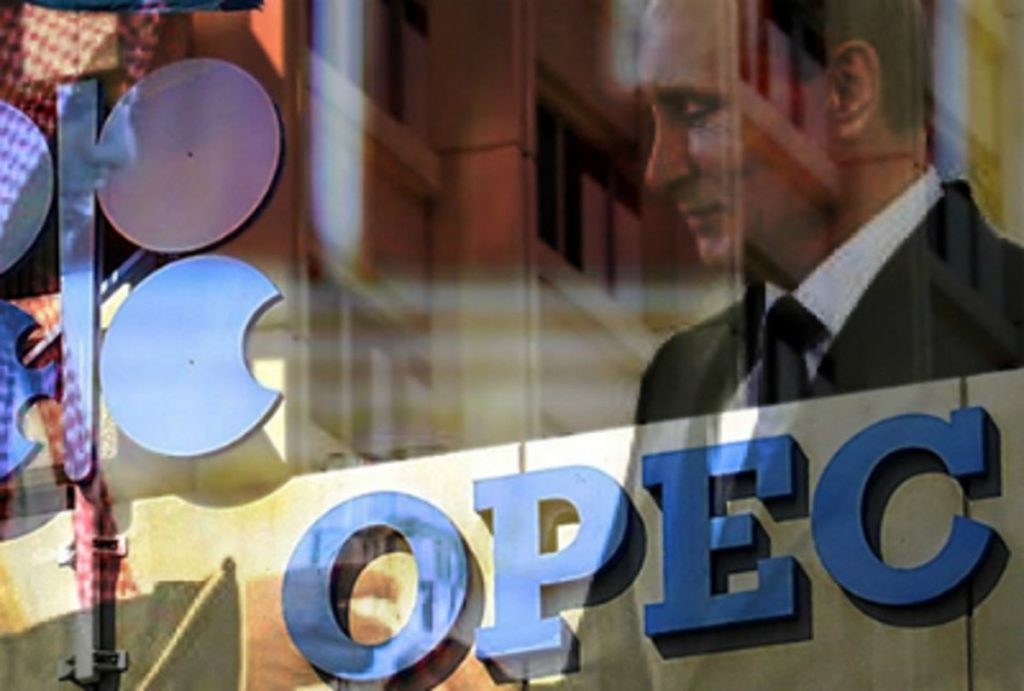By Olesya Astakhova and Vladimir Soldatkin

- Novak says OPEC+ key to long-term national interests
- OPEC head repeats call for investments in oil and gas
- Energy security key to climate action success, Saudi minister says
- Saudi minister sees Europe struggling with transition challenge
MOSCOW, Oct 15 (Reuters) – Collective action within oil producer group OPEC+ is in the interest of both Russia and Saudi Arabia, Russia’s deputy prime minister Alexander Novak told Saudi Arabia’s Energy Minister Prince Abdulaziz bin Salman in Moscow on Wednesday, according to a Russian government statement.
Saudi Arabia and Russia, the two top OPEC+ producers, have recently navigated tensions over oil output policy, with Riyadh pushing for accelerated supply increases and Moscow advocating a slower pace, according to sources with knowledge of OPEC+ talks.
“The Deputy Prime Minister noted that collective action within OPEC+ is in the long-term national interests and contributes to strengthening the economies of both countries,” the Russian statement said after Novak met the Saudi minister.
JOINT ENERGY PROJECTS DISCUSSED
Russia’s comments, highlighting the benefits of the alliance for both Moscow and Riyadh, were made during a visit of top OPEC officials to Moscow for the Russian Energy Week conference.
Novak and Prince Abdulaziz also discussed the possibility of developing joint projects in LNG, hydroelectric, and nuclear energy, the statement added.
OPEC+ groups the Organization of the Petroleum Exporting Countries plus Russia and other allies, and pumps about half the world’s oil. This year OPEC+ is pumping more barrels to regain market share after years of cuts to support the market.
Still, OPEC+ has been taking a more cautious approach in its latest output decisions on concerns about a glut.
OPEC DOUBLES DOWN ON OIL’S LONG-TERM ROLE
Earlier in the day, OPEC’s secretary general and Prince Abdulaziz pushed back against predictions of a faster transition to cleaner fuels.
OPEC has consistently argued that oil demand will continue rising for decades, disagreeing with the International Energy Agency which predicts demand will peak soon.
OPEC Secretary General Haitham Al Ghais said at the conference that growing economies, rising populations and urbanisation led “to one clear signal that the world will need much more energy than it is consuming today”.
OPEC URGES MORE INVESTMENT IN OIL INDUSTRY
Al Ghais predicted oil would continue to account for about 30% of the global energy mix by 2050, and forecast 23% growth in primary energy demand by then.
OPEC has been calling for more oil industry investment and said in a July report that the sector needed $18.2 trillion to be spent by 2050, up from a $17.4 trillion estimate last year.
The IEA said in 2021 there should be no investment in new oil and gas projects if the world was serious about meeting climate targets, but in a September report, it said investment was needed to offset supply losses.
Prince Abdulaziz said that energy security and economic prosperity were prerequisites for successful climate action.
Without energy security and economic prosperity, “I don’t think you’ll be able to attend to sustainability and climate change,” he said.
He singled out Europe, saying it was struggling with the challenge of moving away from its established energy infrastructure towards uncertain alternatives.
Reporting by Youssef Saba in Dubai, Vladimir Soldatkin and Olesya Astakhova in Moscow; Writing by Ahmad Ghaddar and Ahmed Elimam; Editing by Alex Lawler, Mark Potter, Elaine Hardcastle
Share This:




 CDN NEWS |
CDN NEWS |  US NEWS
US NEWS 
























